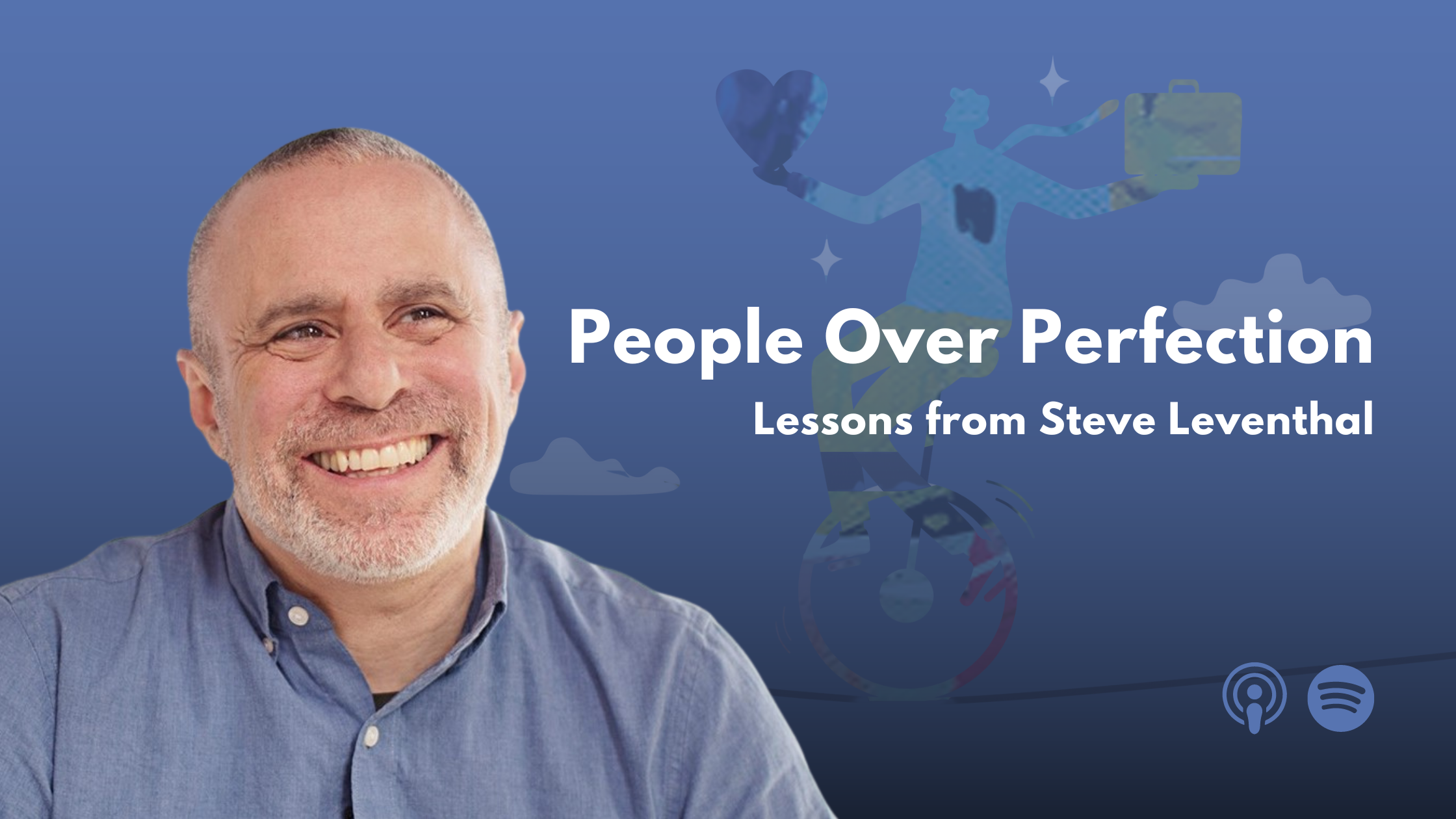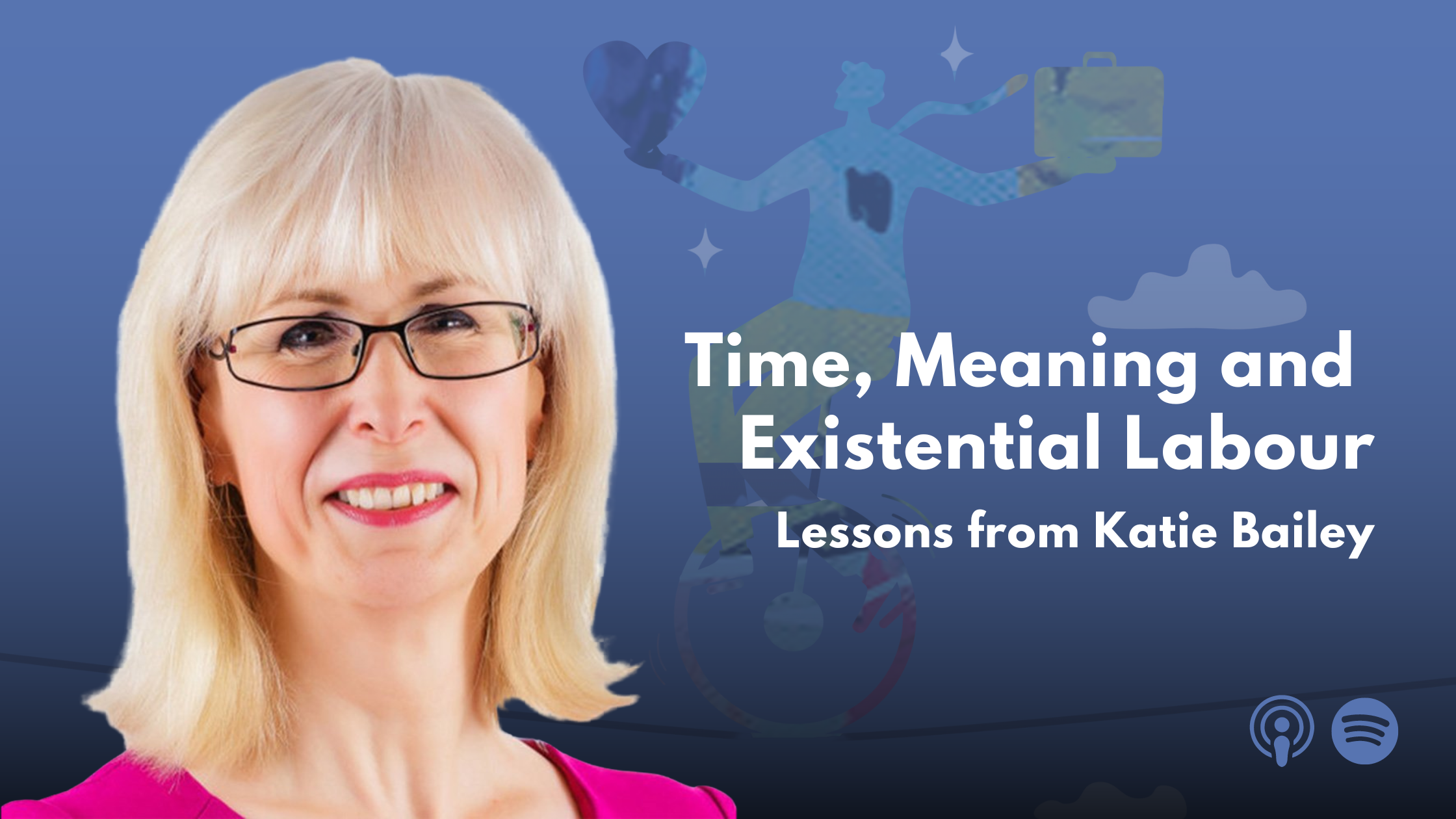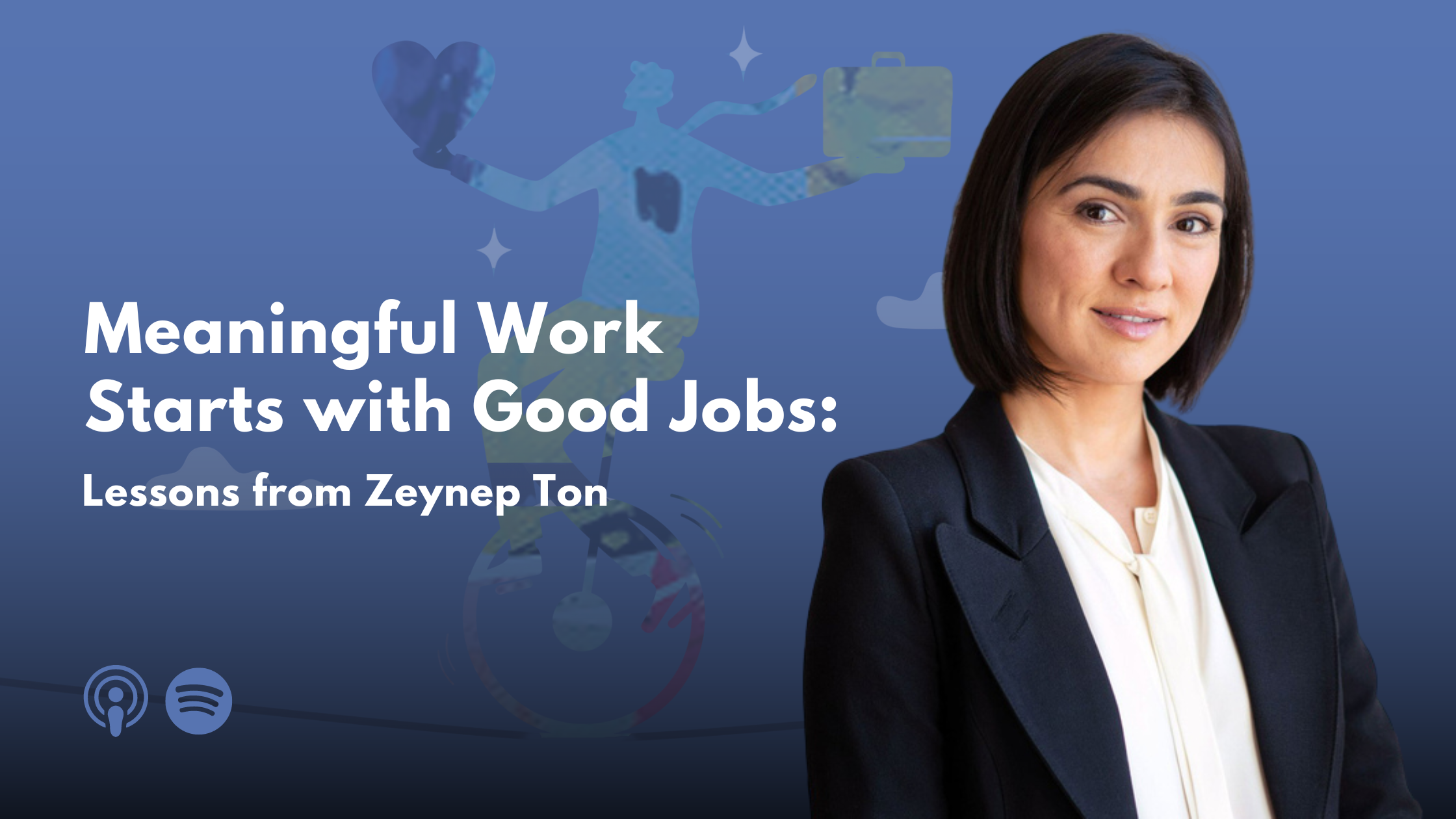In this episode of Meaningful Work Matters, Andrew Soren spoke with Joe Grzywacz, the Associate Dean of Research and Faculty Development at San Jose State University in the College of Health and Sciences. His research expertise lies at the intersection of work and family life and their profound impact on health and well-being.
Grzywacz recognized early in his career that work can be a challenge to push through, but at other times, it can be a place to flourish and do well. The key difference is how work is designed and positioned to achieve the latter.
Midlife in the United States (MIDUS)
Grzywacz has been deeply involved in a landmark research project called Midlife Development in the U.S. (MIDUS). Since it started in 1995, this national longitudinal study of health and wellbeing has aimed to understand successful aging. MIDUS is unique because it measures social, biological, economic, and psychological factors across disciplines. Today, it is one of the largest studies of its kind, funded by the National Institute on Health.
Grzywacz oversees all areas related to the topic of work within the study - a critical factor for understanding health and well-being, given that the average person spends more time at work than just about anywhere else across the lifespan.
The Design of Work
There are different ways to think about the design of work. The National Institute for Occupational Health and Safety, for example, looks at job characteristics, which, boiled down, include buckets like:
What are the opportunities workers have on the job to exercise control or decision-making regarding their work?
How much external pressure or demand is put on workers?
Is what I am doing meaningful, or does what I am doing matter in a lasting way?
Am I treated fairly and equitably?
Grzywacz notes that these job characteristics are often very different for black and brown individuals, for younger workers compared to older workers, for men compared to women, etc. The job market is segregated in many ways that tend to benefit some people and not others.
The Impact on Psychological Well-Being
Based on about 40+ years of research, there are substantial consequences when these fundamental characteristics are unmet. These characteristics are tied to a concept called cognitive reserve. If you think of your mind as a muscle, the more you use it, the longer it will stay robust and healthy.
Likewise, many of these job characteristics are linked to how well your cognitive functioning holds up later in life and how physical health plays out in the face of chronic disease.
To Grzywacz, it’s crystal clear that work underlies our health and well-being, even if it takes a bit to catch up to us.
The Work-Family Interface
The work-family interface is all about how our jobs and families intersect. Grzywacz highlights that the two influence each other in various ways - sometimes good, sometimes bad.
On the one hand, we are caretakers and loved ones within a family structure, and on the other, we are operating in an economy that likely requires us also to be a worker. We are often splitting our time to satisfy both roles.
Finding a balance between these two important roles can be a challenge for all of us at one point or another. However, as Grzywacz explains, the synergy between work and life can also be enriching. In the Western world, this works very well. For example, for those who earn a living wage, or even a climbing wage, that’s a form of work-family enrichment because our work life ends up benefitting our family life.
Those with a synergistic or enriching work and family life have higher levels of well-being - and that is associated with less chronic conditions and lower stress levels, etc. A positive work-life interface benefits individuals, their families, organizations, and society.
Cross-Cultural Differences
According to Grzywacz, the research shows that job characteristics are relatively universal across cultural contexts.
By contrast, there are distinctive cultural differences when combining work and family. In the US, we’ve lived a ‘segmented reality’ throughout the industrial area. This means we spend 8 hours a day at work, then come home and attend to home life. In the US, work tends to be viewed as a different space than our family life.
The US is relatively unique in this separation. Other parts of the world see work and family as more integrated. For example, one might say they work for their family, and their commitment to their family is reflected in their work.
The Research on Alienation
Another area of Grzywacz’s research is alienation. This refers to when a worker is separated or alienated from the more significant impact, meaning, or context of their work AND the other individuals who are part of the final product.
The evidence tells us that alienated work is linked to a variety of mental health including depression. We have only recently connected this concept to the biology of successful aging. People with higher levels of alienated work show more wear and tear on their bodies at an organ and tissue level than those who experience less alienation at work.
Final Thoughts
In wrapping up, Grzywacz offers a reflection on pursuing meaningful work. He urges listeners to consider the balance between seeking meaning in work and finding contentment with what they have. He posits that while meaningful work is important, the constant chase for the 'perfect' job can lead to dissatisfaction and overlook the value of other life domains.
For further exploration:
Mid-Life in the United States - link


































